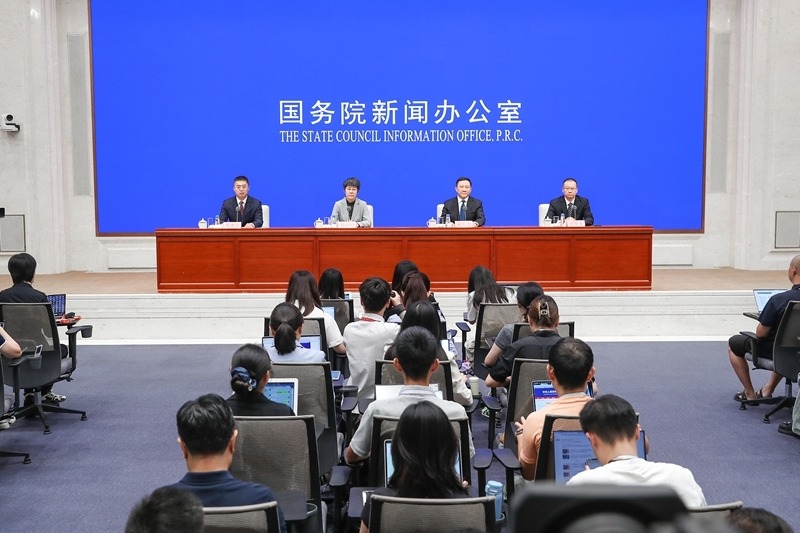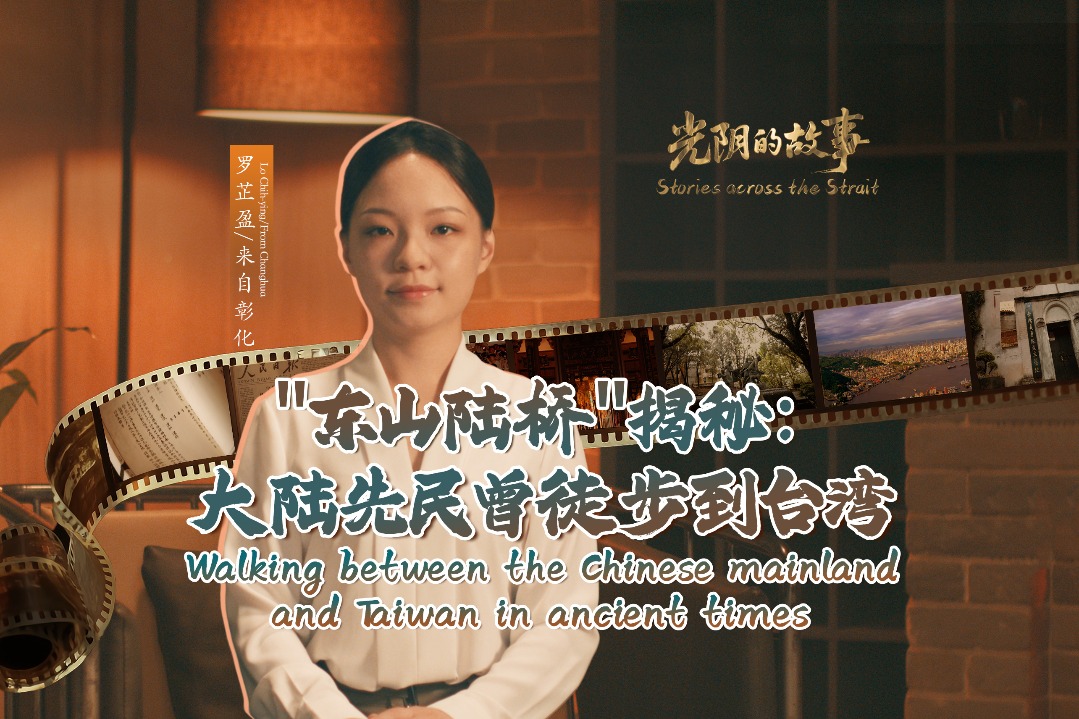Wrong US actions hurt relations


Bedrock of peace across the Taiwan Straits being seriously damaged
The one-China principle — the bedrock of China-US relations as well as peace across the Taiwan Straits — is being seriously damaged by the wrong US actions, which will turn the area into a "dangerous powder keg", according to a top Chinese envoy in Washington.
In an opinion piece published on Thursday, Chinese Ambassador to the United States Qin Gang noted that recent US actions have been widely distant from its commitment to the one-China principle, and that Beijing will never compromise or back down on the issue concerning its core interests.
The one-China principle refers to the fact that there is only one China; Taiwan is not a sovereign country, but part of China; and that the government of the People's Republic of China is the sole legal government representing the whole of China, Qin wrote in South China Morning Post.
The principle has long been an international consensus "solidly" based on international law, and served the basis on which 181 countries, including the United States, have established diplomatic relations with China.
The article appeared on the same day that US Secretary of State Antony Blinken delivered an address on the Joe Biden administration's China policy, in which the top US diplomat said that on Taiwan, the approach of the US "has been consistent across decades and administrations", and the US "remains committed to our 'one-China' policy".
That policy, according to Blinken, "is guided by the Taiwan Relations Act, the three Joint Communiques, the Six Assurances".
Qin noted that the US "has been hollowing out the one-China policy".
"It puts its Taiwan Relations Act and the Six Assurances, something that only reflects its own will, above the three Sino-US joint communiques, which are the common understanding between two countries. This has violated the basic norms governing international relations," he wrote.
The US government, while claiming its one-China policy has not changed, that it does not support "Taiwan independence" and does not want conflict or confrontation with China, considers Taiwan as a "strategic node" in the first island chain to contain China.
Qin wrote that the US has made a serious commitment to the one-China principle, as stipulated in the three Sino-US joint communiques, in which it also stated it would only maintain cultural, commercial and other unofficial relations with Taiwan.
In addition, the US pledged not to carry out a long-term policy of arms sales to Taiwan and intends gradually to reduce its arms sales, leading, over a period of time, to a final resolution.
However, the principle is being seriously damaged. Tsai Ing-wen's authorities reject the "1992 Consensus" that reflects the one-China principle and are plotting an incremental approach to "Taiwan independence", Qin noted.
While "substantially" upgrading its official ties with Taiwan and sending senior officials to the island, the US side has been "whitewashing" its moves as developing "unofficial relations", Qin wrote.
He pointed out that while paying lip service to cross-Straits peace, the US keeps selling sophisticated weaponry to Taiwan, only adding fuel to the fire.
US actions will embolden separatists and turn the Taiwan Straits into a dangerous powder keg, he wrote.
The ambassador noted that as the Ukraine crisis unfolds, noises about "Ukraine today, Taiwan tomorrow" are growing, drawing parallels between two issues that are totally different.
"Ukraine is a sovereign state; Taiwan has never been one. The Taiwan question is part of China's internal affairs that brook no external interference," he wrote.
The sovereignty and territorial integrity of all countries must be respected. They include Ukraine, and should include China, whose sovereignty and territorial integrity on the Taiwan question must be respected, he added.
In the article, Qin said that promoting peaceful reunification while not giving up the use of force are like "two sides of the same coin".
"Their ultimate purpose is to create favorable conditions for peaceful reunification. The one-China principle must be upheld to do this," he wrote.
Any discussion in America about "strategic clarity" or "strategic ambiguity" is a waste of time. No one should underestimate China's determination, resolve and capability to defend national sovereignty and territorial integrity, Qin noted.
- Death toll in mountain torrents in NW China's Gansu rises to 13
- Robot-themed restaurant integrates dining with technology
- China's summer box office surpasses 8b yuan
- Flash floods batter Gansu townships
- Shaolin Temple denies mass resignation of monks
- Emergency teams working around the clock to repair critical highway in Gansu





































